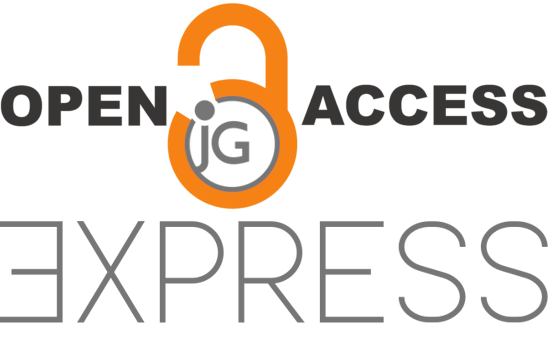Author
Potential authors should review the About the Journal page for the journal's policies, as well as the Author Guidelines. Authors need to register with the journal before submitting or, if already registered, can log in and begin the submission process. Journal of Geophysics is one of a handful of scholarly journals that publish original scientific works under CC BY-NC-ND 4.0 - the only Creative Commons license affording absolute worldwide protection of authors' intellectual property. You can view our complete copyright policy at SHERPA/RoMEO.
Papers published in the Journal of Geophysics are permanently preserved by the Keepers Registry, a global network of permanent depositories coordinated by national libraries.
Publishing model
Journal of Geophysics is published under the scholar-publishers model, meaning authors do not surrender their copyright to us. Instead, and unlike corporate publishers like Elsevier or Springer Nature that resell copyright to third-parties for up to $80,000 (per paper, per transaction!), the Journal of Geophysics authors share the copyright equally with this journal. Therefore all the proceeds from reselling the copyright to third parties (corporate, academia, governments, military, and so on) are shared to equal parts (50% to the journal, 50% to the lead author). Under the Berne Convention, this protection is an inheritable right that lasts for as long as the rightsholder lives + 50 years.
By submitting to this journal, the lead author, on behalf of all co-authors, grants permission to this journal to represent all co-authors in negotiating copyright sales and collecting proceeds. The lead author should negotiate with his/her co-authors the modalities of distributing the lead author's portion of the proceeds. Usually, this is per pre-agreed percentage of each co-author's contribution to creating the copyrighted work.
Profit sharing
The scholar-publishers model thus enables profit sharing with authors as well as all the involved in the academic publishing process: scientific editors, technical editors, external referees, staff. The only obstacle to scientists getting paid for their work (as artists, engineers, entrepreneurs, inventors, lawyers, and all other professionals, really) has been the existence of so-called academic publishers - private profiteers who enslaved some of the smartest people on this planet for personal gain. (more...)
Public Identifier
This journal uses ARK Public Identifier (a tenable successor to DOI) developed by the University of California, already exceeding 8.2 billion issued ARKs (as opposed to 240 million issued DOIs). As with the DOI and many of 900+ identifiers in use today, the ARK identifier is also fully integrable with most of the academic profiling systems, including ORCID.

In the event of paper acceptance, the authors will be presented with the Open Access Express (OAE) option to make the published work instantly available to unlimited audiences, thus increasing the work's exposure.
Publication Costs
By submitting to this journal, you agree to its fee structure:
The OAE option fee is $3,000. Pending a three-year embargo, all published manuscripts become OA free of charge.
The Journal of Geophysics charges no submission or author fees (including the author publication charge or APC).
Applicable General Terms of Service and related Policies can be found at the publisher.
Author Self-archiving
- Authors retain copyright and grant the Journal of Geophysics right of first publication, with the work three years after publication (the standard embargo for scholarly journals) simultaneously licensed under the Creative Commons BY-NC-ND 4.0 License that allows others to share the work (with an acknowledgment of the work's authorship and initial publication in this journal), except for commercial purposes and for creating derivatives.
- Authors are free to distribute preprints in any way, so the embargo applies to published and accepted works only, regardless of the way of distribution. After the embargo or after the payment of the Open Access Express Fee, the authors can distribute the published or accepted work in any way, within the terms of the above-stated license.
- Authors are permitted and encouraged to post their preprints online (e.g., in institutional repositories or on their website) before and during the submission process, as that can lead to productive exchanges, as well as greater citation of published work (See The Effect of Open Access).
- Authors can enter into separate, additional, but non-commercial contractual arrangements for the non-exclusive distribution of the journal's published or accepted version of the work (e.g., post it to an institutional repository, but not publish it in a book), with an acknowledgment of its initial publication in this journal.

